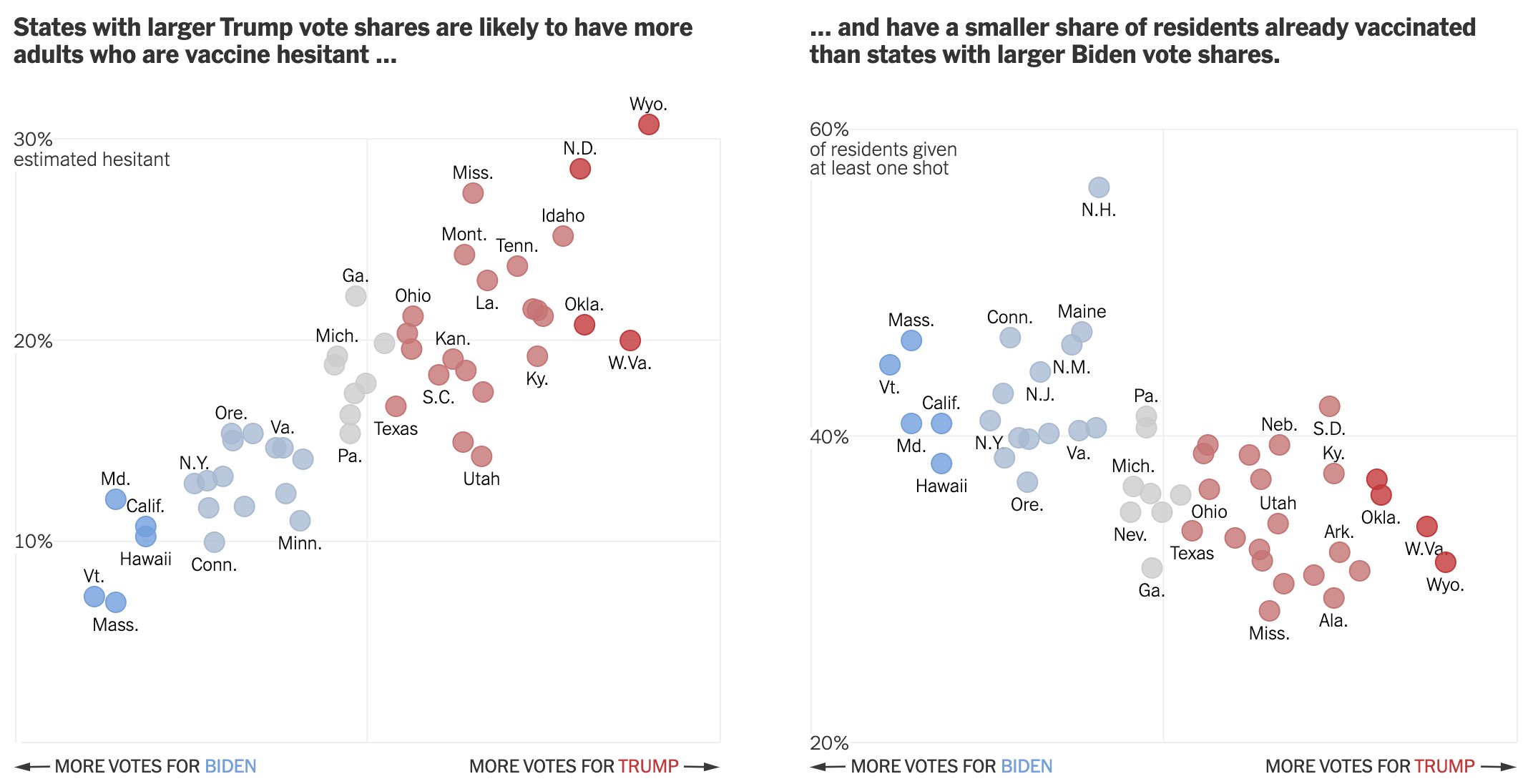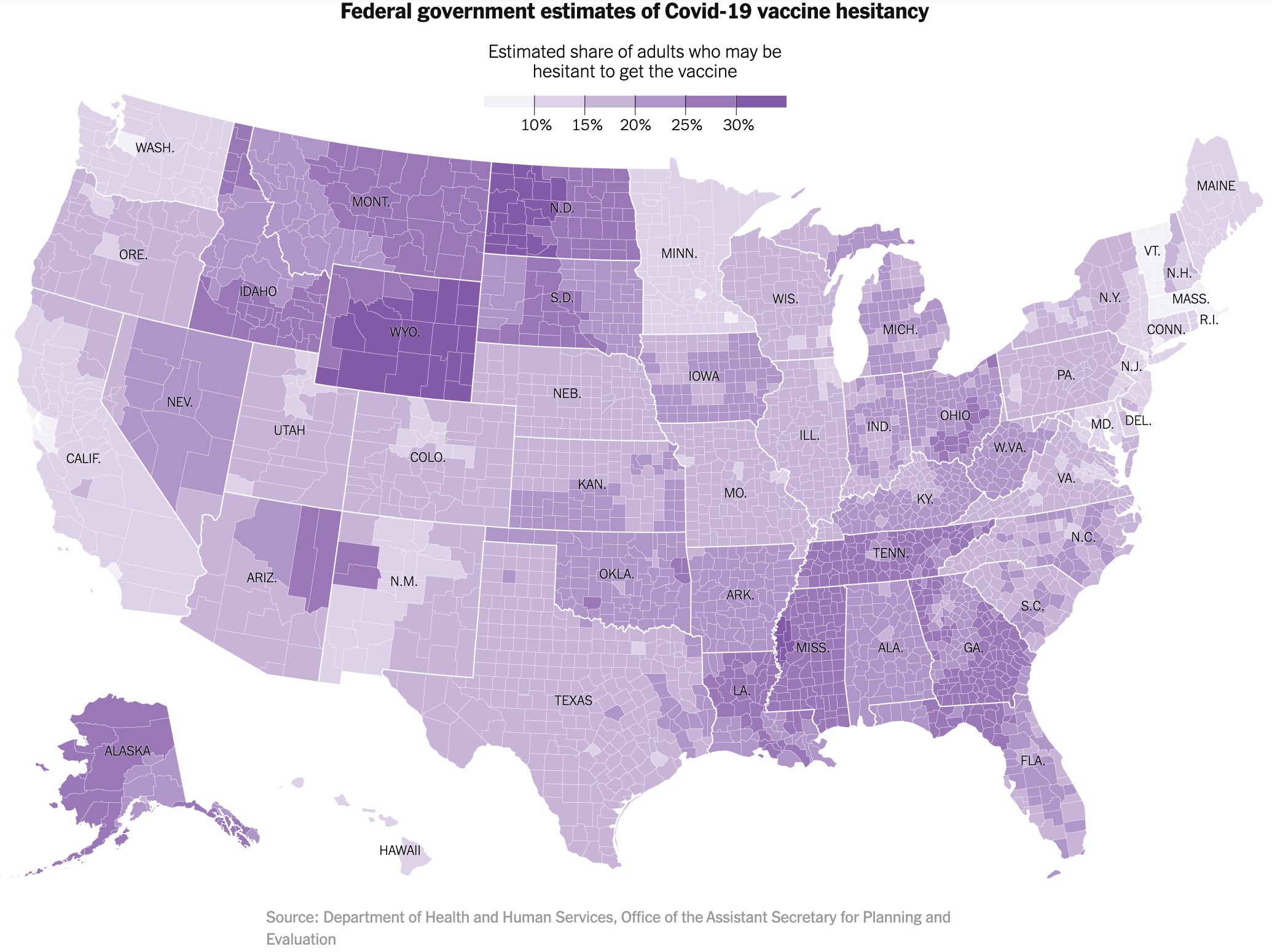As we discuss the future of technology, including availability of semiconductors, vaccine hesitancy, and challenges surrounding digital vaccination infrastucture, these hurdles may pale in comparison to the long-term consequences of COVID-19. The partisan divide is showing deep implications both in hesitancy and real-world vaccination rates.

According to Gallup polling, the partisan and gender divides also affect precationary measures like mask-wearing. And although experts are now admitting that the US, as a whole, is unlikely to reach herd immunity anytime soon, the situation county to county appears quite variable.

Although the data is concerning, interpreting the implications of these regional variations in hesitancy and vaccination rates is key to understanding what could happen in the future. As always, we do our best to read the tea leaves and discuss the regional implications for these behavioral differences.
Event Cancellations
Although events for conservative political organizations have seen fewer cancellations, corporate events differ. We already have several case studies to demonstrate ways to time and announce cancellations. As regional vaccination disparity grows, we may see corporations discriminate against certain regions of the country or require vaccination to attend conferences and concerts.
Corporate Developments
We’ve seen companies abandon their leases on office buildings, especially in Dallas. As some regions see disproportionate increases in vaccination rates, the recovery of the commercial real estate industry is likely to be uneven. It’s also possible that new corporations will be less likely to headquarter themselves in regions with lower vaccination rates.
Job Opportunity
As employers debate vaccine mandates for their employees, there could be massive implications for job seekers in certain regions of the country and discrimination against those who refuse vaccination. We have already seen termination based on vaccine refusal. Many states employ at-will. This could easily become common practice.
Let’s stay positive while we stay COVID-negative
While some states show abysmal vaccination rates (see Tennessee at 36% vaccinated with first dose as of May 10), Connecticut has distributed first doses to 70% of its population and will be the first US state to hit 70% fully vaccinated. As some states (including California, Vermont, and Massachusetts) approach the hypothetical rate for herd immunity (80%, by current estimates) the disparity and impact of this vaccination gap will become more fully realized. And as Tennessee becomes the third state to enact a trans athlete ban and introduces a bill to eliminate early voting, we wonder whether state leadership is too focused on hypothetical social issues rather than a very real public health crisis. Public policy is usually better suited to science and empirical data rather than prejudice.
We encourage all readers to be fully vaccinated as soon as they are able. Let’s do our part to stop the spread and encourage our friends and family to do the same. Vaccination is our best bet for returning to the normalcy we all crave. Visit Vaccines.gov to locate your nearest vaccine provider.
